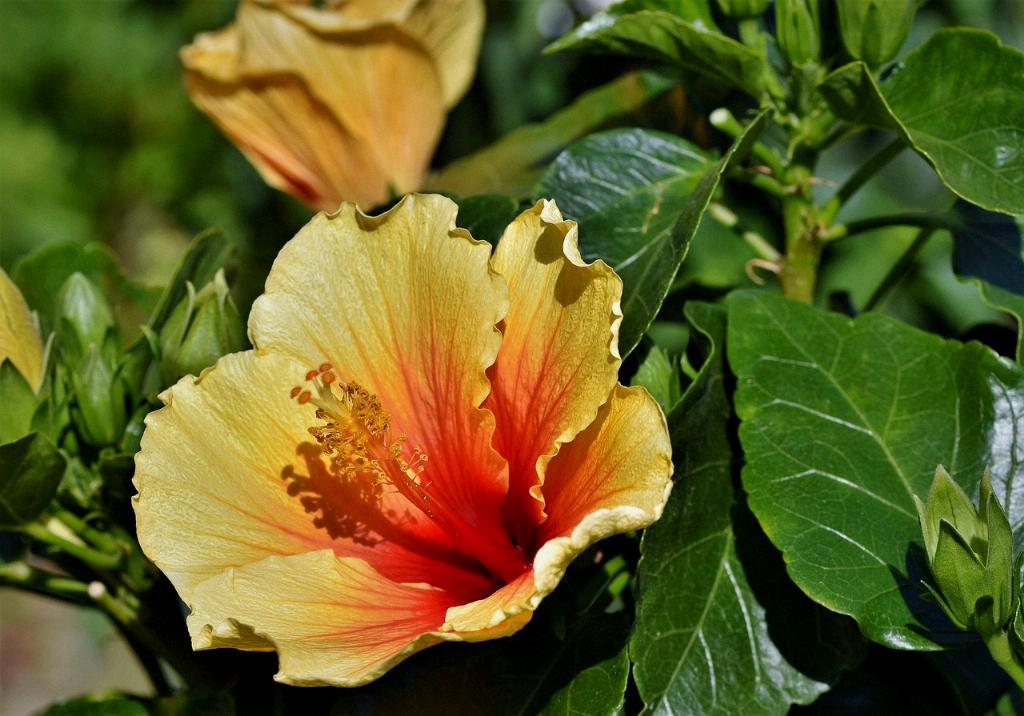When it comes to our furry companions, keeping them safe and healthy is a top priority for most pet owners. One common concern is whether certain plants in our homes or gardens could potentially be harmful to our beloved dogs. Hibiscus, a lovely flowering plant known for its vibrant blossoms, is a popular choice for many garden enthusiasts. However, the question remains: is the hibiscus plant poisonous to dogs?
While hibiscus plants are generally considered to be non-toxic to pets, there is an important distinction to be made. The Rose of Sharon, which belongs to the hibiscus family (Hibiscus syriacus), can pose a risk to dogs if ingested in large quantities. This particular variety of hibiscus contains substances that can lead to adverse reactions in dogs, such as nausea, diarrhea, and vomiting.
It’s crucial for pet owners to be aware of the specific type of hibiscus plant they have in their home or garden. If you have a Rose of Sharon hibiscus, extra caution should be taken to ensure that your dog does not have access to the plant or its flowers. Monitoring your dog’s behavior and any signs of gastrointestinal distress is essential if you suspect they may have consumed parts of this particular hibiscus variety.
Despite the potential risks associated with the Rose of Sharon hibiscus, many other varieties of hibiscus are generally safe for dogs. These non-toxic hibiscus plants can add beauty and color to your outdoor space without posing a threat to your furry friend. As always, it’s best to research the specific plants in your environment and consult with a veterinarian if you have any concerns about your dog’s safety.
When it comes to pet safety, prevention is key. Taking proactive measures to create a pet-friendly environment can help reduce the risk of accidental ingestion of harmful plants. This includes keeping toxic plants out of reach, training your dog to avoid consuming unfamiliar substances, and maintaining a vigilant eye on your pet’s behavior when they are outdoors.
If you suspect that your dog has ingested any part of a hibiscus plant, whether it’s the Rose of Sharon variety or another type, it’s important to seek veterinary attention promptly. Even if the plant is considered non-toxic, some dogs may still experience mild gastrointestinal upset after consuming plant material. A veterinarian can provide guidance on monitoring your dog’s symptoms and taking appropriate action.
Educating yourself about the potential risks associated with certain plants can help you make informed decisions about the flora in your living space. While hibiscus plants are generally safe for pets, it’s crucial to be aware of any exceptions, such as the toxic nature of the Rose of Sharon hibiscus. By staying informed and proactive, you can create a safe and thriving environment for both your plants and your furry companions.
In conclusion, while the majority of hibiscus plants are non-toxic to dogs, the Rose of Sharon variety can be harmful if ingested in large amounts. Pet owners should take precautions to prevent their dogs from accessing this particular hibiscus plant and monitor their pets for any signs of poisoning if exposure occurs. As with any potential toxic exposure, seeking veterinary care is always recommended to ensure the health and well-being of your canine companion.

